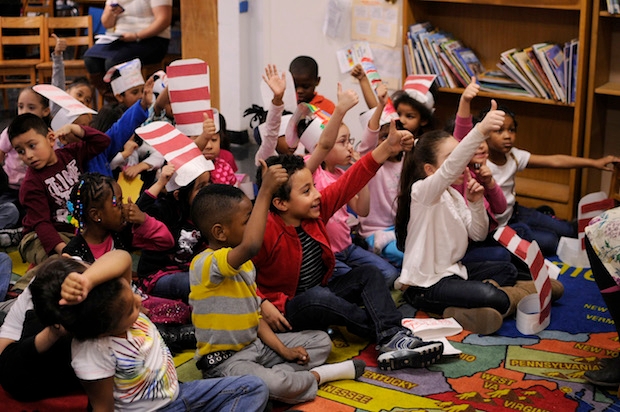You may have heard about the Family and Childcare Trust’s survey today, about the costs of childcare.
You wouldn’t know it from the headlines but it actually found that in England, costs have fallen for the first time since the survey started 12 years ago. The figures in the report show that, after inflation, the cost of nurseries fell by two per cent, the cost of after-school clubs fell by five per cent, and the cost of a child-minder’s after-school pickup fell by a full 13 per cent.
There is now mounting evidence that childcare costs have at last stabilised after more than a decade of rising prices. The health management consultancy, Laing & Buisson, say that fees for full day-care in nurseries have frozen for two successive years. The National Day Nurseries Association found that the majority (58 per cent) of nurseries froze their fees in 2013. And the Department for Education’s own survey of parents, published last month, found the cost of day nurseries and childminders fell, while the use of childcare by the poorest parents rose by 16 per cent.
So why do the headlines imply costs are rising?
Because Labour in Wales and the SNP in Scotland have failed hardworking families. In Scotland, the average costs of nurseries went up by eight per cent. In Wales, costs went up by 13 per cent. But in England, costs flatlined in cash terms, falling by 2 per cent after inflation.
In England, where the Coalition is responsible for childcare, our long-term plan to fix the economy to help families meet their obligations and provide them with financial security is working.
We are helping to make the system much more efficient so we get the most from the money that hardworking parents spend. Things like removing the red tape that stops nurseries expanding, enabling school nurseries to open longer and be more flexible, establishing childminder agencies to make it easier to become a childminder – or simplifying funding so that thousands more childminders and nurseries can offer places. These measures aim to drive down costs, and make it easier for parents to access affordable childcare, so they can go out to work and provide security for their families.
That’s not all. For the very first time, every three- and four-year-old can access 15 hours a week of free early education. And for the very first time, this help is being extended to 260,000 two-year-olds from low-income families.
All this is before tax-free childcare – a massive boost to families struggling with childcare bills – comes into effect. When tax-free childcare is up and running, it will be worth up to £1,200 per year towards each child’s childcare costs. More money in the pockets of hardworking families, meaning more financial security and peace of mind for the future.
Let’s not forget the situation we inherited in England. Labour let costs soar and families are still suffering as a result. Between 2002 and 2010 – according to the same survey which has been updated today – childcare costs increased by almost 50%, equivalent to a rise of more than £1,000 a year. That’s just one reason why for many parents, the introduction of tax-free childcare will be a welcome relief.
What’s more, today Labour have failed to acknowledge the progress we are making in England. If costs have gone down in England, they should celebrate it – not ignore it. If things are getting better, they should welcome it – not wish it away.
Of course there is still a long way to go. But we’ve made a start and we are determined to see through our plan.
Elizabeth Truss is the Minister for Education and Childcare






Comments